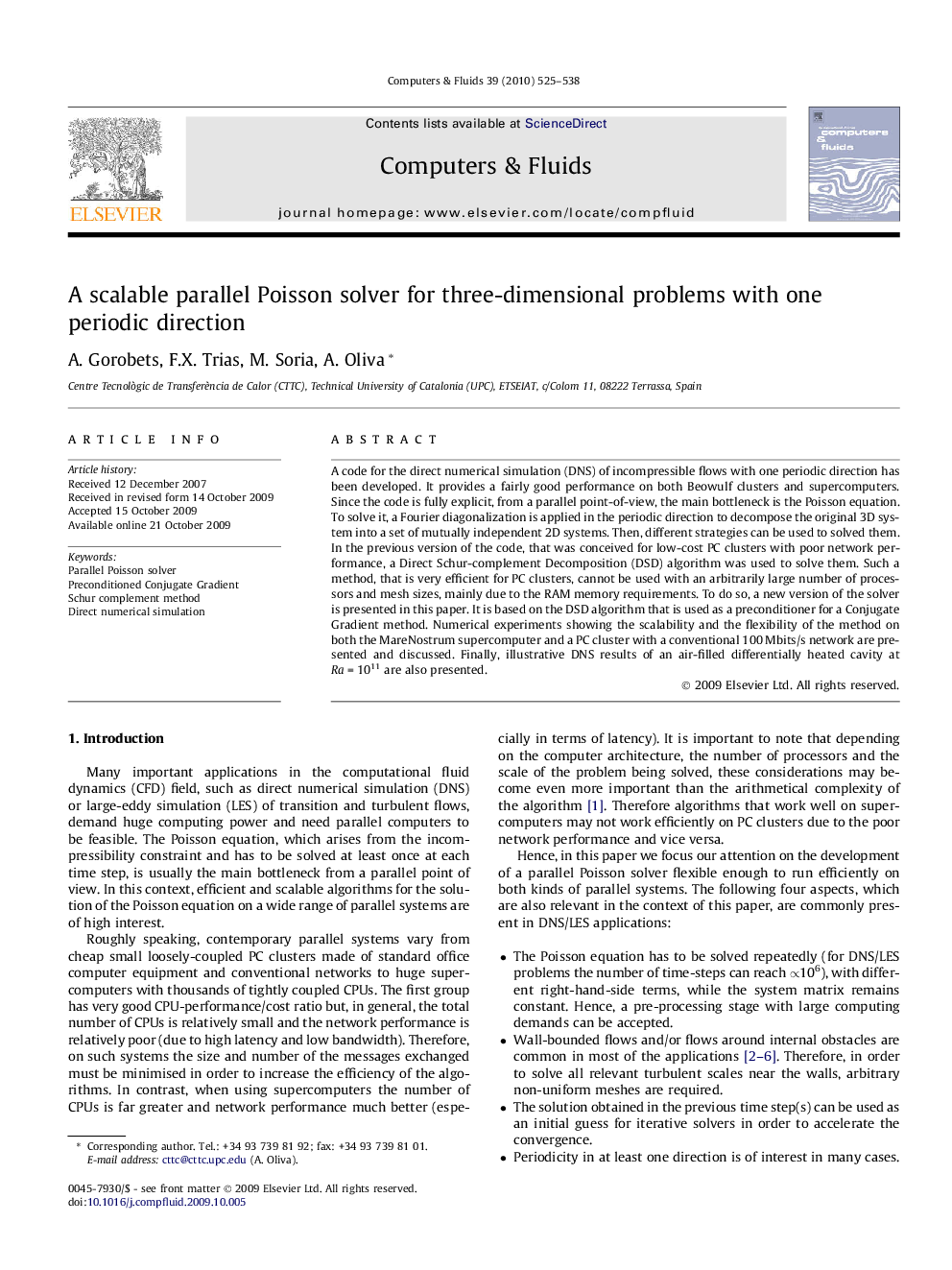| کد مقاله | کد نشریه | سال انتشار | مقاله انگلیسی | نسخه تمام متن |
|---|---|---|---|---|
| 769259 | 897379 | 2010 | 14 صفحه PDF | دانلود رایگان |

A code for the direct numerical simulation (DNS) of incompressible flows with one periodic direction has been developed. It provides a fairly good performance on both Beowulf clusters and supercomputers. Since the code is fully explicit, from a parallel point-of-view, the main bottleneck is the Poisson equation. To solve it, a Fourier diagonalization is applied in the periodic direction to decompose the original 3D system into a set of mutually independent 2D systems. Then, different strategies can be used to solved them. In the previous version of the code, that was conceived for low-cost PC clusters with poor network performance, a Direct Schur-complement Decomposition (DSD) algorithm was used to solve them. Such a method, that is very efficient for PC clusters, cannot be used with an arbitrarily large number of processors and mesh sizes, mainly due to the RAM memory requirements. To do so, a new version of the solver is presented in this paper. It is based on the DSD algorithm that is used as a preconditioner for a Conjugate Gradient method. Numerical experiments showing the scalability and the flexibility of the method on both the MareNostrum supercomputer and a PC cluster with a conventional 100 Mbits/s network are presented and discussed. Finally, illustrative DNS results of an air-filled differentially heated cavity at Ra = 1011 are also presented.
Journal: Computers & Fluids - Volume 39, Issue 3, March 2010, Pages 525–538